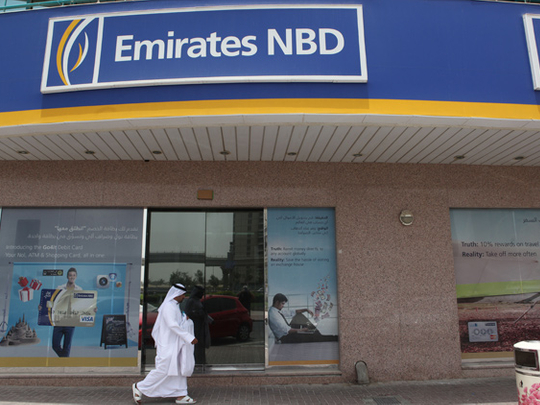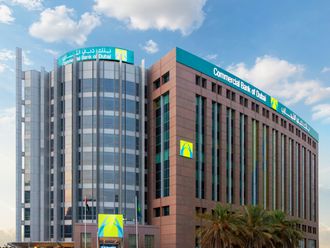
Dubai: Dubai’s biggest bank, Emirates NBD, hopes to manage a sizeable number of the 15 to 20 Initial Public Offerings (IPOs) they are expecting from diverse UAE companies in the next two years amid a surge in the local markets that began last year and is continuing well into 2014.
“I am expecting not less than 15 to 20 IPOs in the next 24 months,” Abdullah Al Hosani, general manger of Emirates NBD Securities, told Gulf News in an exclusive interview last Tuesday. “As one of the biggest financial institutions, we will have a good number of them.”
When asked how many companies the bank is working currently with a firm intent to go the regulator to list, Al Hosani refrained from sharing any numbers.
“I can’t say as those are all classified information,” he said. “Let’s wait for the news. We are working on something.”
In the past few years, UAE companies have preferred to list in London over Dubai or Abu Dhabi. The latest one to list in Europe’s financial capital has been Abu Dhabi-based Gulf Marine Services, which began its public trading on Wednesday. Damac, headquartered in Dubai and Abu Dhabi’s health companies, NMC and Al Noor Hospitals Group, were among the others to list in London.
Local markets
Al Hosani believes, going forward, some UAE companies with a business that has a global presence or a more outside presence will continue to list in London.
Local companies, he said, will focus more on local markets.
The new Commercial Companies Law, not yet finalised and published in the Public Gazette, is expected to spur local businesses to go public, Al Hosani added.
So far if a local private business had to convert to a public joint stock company and wanted to list in a local stock exchange, it had to sell a minimum of 55 per cent of its shares to the public. Under the new draft law UAE Commercial Companies Law, the owners can now retain 70 per cent of their capital in the company.
“The new law — 70 for the owners and 30 per cent for the public — will give more initiative or push to business owners to go public, mainly the family businesses,” he said.
As for companies opting to list in Dubai or Abu Dhabi (with the merger may be still some months away), Al Hosani thinks it will be split equally, but he is not so sure.
“We may see even some companies from outside which may list here — from the region,” he added. “Dual listing will happen.”
As the IPO market revives after a drought of five years on Dubai Financial Market, local banks have been quick to get into the act after having successfully tackled the financial crisis, during which they invested in people and systems to prepare for this forthcoming opportune period. The major local players in the IPO market are Emirates NBD, National Bank of Abu Dhabi and smaller ones like investment bank, Shuaa Capital. Shuaa and Emirates NBD have been appointed joint book runners for Emirates REIT, the public listing plan of which was announced about two weeks ago.
Shares sales
Following the first announcement, Emaar Properties pleasantly surprised the market with its intention to launch a new IPO for its shopping malls and hotels unit. The region’s biggest developer has plans to list in Dubai and London, and expects shares sales to total about Dh9 billion. Morgan Stanley has been appointed as Emaar’s advisor. Al Hosani expects shares sales of more than Dh20 billion in the next two years and that will come more from diverse sectors, rather than the heavyweights like real estate and banking.
“I don’t think real estate will be the focus of the market,” he said. “I think we would see more of retail, services and education companies coming into the market — all sectors which are not listed. Even there will be a push from the government to create more sectors and to make the financial indexes DFM and ADX representing more of the economy.”
During the recession between 2008 and 2011, Emirates NBD Securities made substantial investments, the benefits of which it is reaping now, said Al Hosani.
“We revamped the infrastructure and invested a lot to in our human resources to be ready for such a time,” he said. “We invested to educate and train our staff and develop our system, expecting a bigger flow from customers.”











